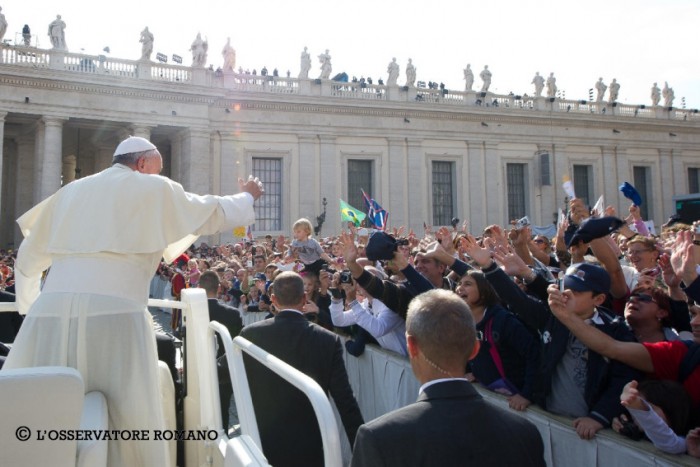2nd November 2015
Nostra Aetate: An appeal for our times

Nostra aetate (trans. “In our Time”) was the shortest of the many official documents that emerged from the Second Vatican Council. It was sub-titled “Declaration on the Relation of the Church with Non-Christian Religions”. Passed by an overwhelming majority of the bishops present, and promulgated by Pope Paul VI on 28 October 1965, the Holy See is currently celebrating its 50th anniversary.
And rightly so. It is without doubt one of the most important results of Vatican II. Its origin was the recognition by Pope John XXIII that the Catholic Church did have a case to answer in relation to centuries of Jewish persecution in Europe and elsewhere. It stated boldly that “the Church, mindful of the patrimony she shares with the Jews and moved not by political reasons but by the Gospel’s spiritual love, decries hatred, persecutions, displays of anti-Semitism, directed against Jews at any time and by anyone.” Cardinal Koch, currently head of the Holy See office responsible for relations with Judaism, has called Nostra aetate the “Magna Carta” of Judeo-Christian dialogue. He and other speakers at a recent commemorative Vatican conference, Jewish and Christian, stressed its role as a document that has helped to transform the relationship between Christians (specifically Catholics) and Jews: “a new beginning”.
Pope Francis also acknowledged this during an unprecedented General Audience on 28 October in St Peter’s Square, at which he prayed with representatives of all the major world religions, and listened to readings from the text of Nostra aetate instead of the usual Bible reading. “From enemies and strangers, we have become friends and brothers”, he said. “’Yes’ to the rediscovery of the Jewish roots of Christianity; ‘no’ to any form of anti-Semitism and condemnation of any resulting injustice, discrimination and persecution”. And he went further. “Mutual knowledge, respect and esteem constitute the way that … is similarly relevant to relations with other religions. I think in particular of Muslims…”.
Nostra aetate urged Catholics to work with believers of other religions towards mutual understanding. This remains work in progress, amongst believers of all traditions. The rise of religious extremism shows the dangers of mutual ignorance. How many members of ISIL have any real knowledge of other faiths and traditions – or know of Nostra aetate? As the founder of the Sant’Egidio Community, Andrea Riccardi, has said, religion has been used both as the fuel to stoke the fire of war, and as the water to extinguish it. Inter-religious dialogue continues to be something that we cannot treat as a quaint and colourful optional extra to our work on extremism or conflict prevention and resolution. It must be at the very centre, starting with the seminaries, madrassas, rabbinical schools and universities where the next generation of religious leaders and preachers is being formed.